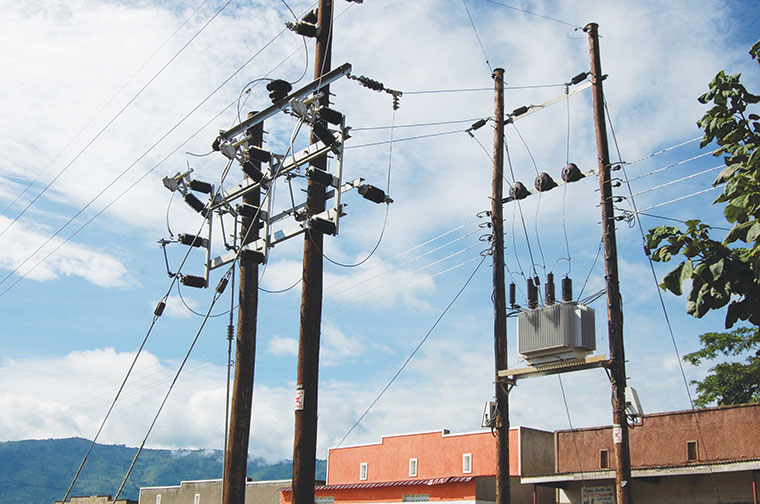Some of the REA electric poles A new report faults the Rural Electrification Agency (REA) for the failure to connect all the targeted 300,000 households to the grid last year.
It says only 67 per cent of the premises were connected under the free Electricity Connections Policy (ECP). The report titled ‘Electricity Supply Industry Performance Report for the Year 2019’, released in August 2020, accuses REA of not availing power distribution utilities with connection material.
In other cases, the report says REA has been slow in repaying the utilities money Umeme and others spent on connections.
“The low performance was a result of the failure of the licensees to further pre-finance the connections as a result of the failure of the Rural Electrification Agency to avail connection materials or reimburse on time,” the report says.
The report, authored by the Electricity Regulatory Authority (ERA), says distribution utility Umeme made 88 per cent (176,317) of the ECP connections.
By the time the memorandum of understanding between REA and Umeme expired, leading to a suspension of free connections, REA owed Umeme $23 million (Shs84.3 billion).
Uganda Electricity Distribution Company (UEDCL) connected 16,761 (8.3 per cent), KRECS 1,998 (1.9 per cent), KIL 1,954 (1 per cent), WENRECO 1,783 (0.9 per cent), BECS 1,005 (0.5 per cent), KIS 747 (0.4 per cent) and PACMECS 551 (0.3 per cent).
Last month, parliament tasked the Energy ministry, which oversees REA, to explain the ‘suspension’ of the ECP. However, the Energy minister Mary Goretti Kitutu is yet to appear before parliament to clarify the government’s position.
The government launched the ECP in November 2018 to connect 300,000 premises annually to the grid so as to increase access to electricity from 25 per cent to 67 per cent by 2027. That would result in the consumption of an extra 500 megawatts, thus help in reducing the surplus electricity Uganda doesn’t consumer and check deemed energy costs.
With the ECP, eligible applicants had to pay just Shs 20,000, instead of an average of $160, to the power utilities operating in their areas to be connected.
To qualify, the applicants had to have used ERA-certified wiremen to internally wire their premises, installing sockets and switches.Additionally, their homes had to be within radius of 90 metres from electricity poles that already have a meter or two on them. The ECP is funded using largely donor funds, which, given the pressure of Covid-19 in the donors’ home countries, could have been […]
